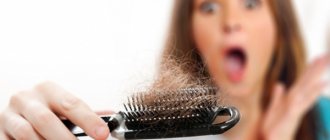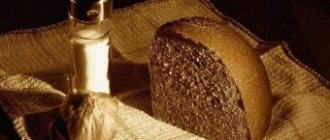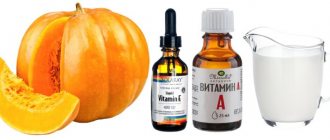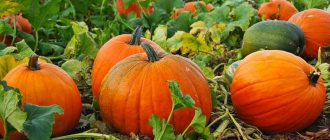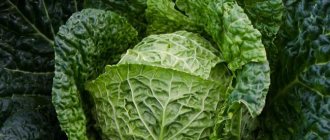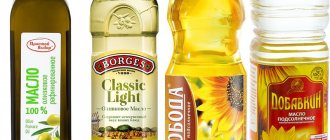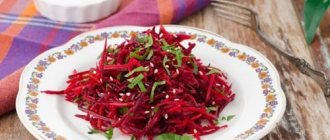So, first we look at the vitamin composition:
| Vitamin | Content in 100 g of raw seeds, in mg | Daily vitamin intake during pregnancy |
| Vitamin E | 35.17 mg | 22.5 mg |
| Vitamin B1 | 1.48 mg | 1.1-1.5 mg |
| Vitamin B6 | 1.3 mg | 1.5 - 2 mg |
| Folic acid | 0.227 mg | 0.4 mg |
| Vitamin PP, nicotinic acid | 8.3 mg | 17 - 18 mg |
| Vitamin B2 | 0.355 mg | 1.1 -1.5 mg |
| Vitamin C | 1.4 mg | 70 mg |
| Vitamin A | 0.003 mg | 1.5 mg |
| Vitamin D | 0 mg | 0.01 mg |
| Vitamin B12 | 0 mg | 0.0024 mg |
The seeds contain the most vitamins E, B1, B6 - about the daily requirement and above. Half the daily dose of folic and niacin. There is very little vitamin A, C, and no vitamins D and B12.
Now let's go over the main functions of the vitamins that seeds are so rich in.
Seeds for weight loss: is it possible or not?
In an effort to lose weight, you should not limit yourself to all your favorite foods. There is a group of treats that, in moderation, will not harm your figure.
The answer to the question whether seeds can be eaten on a diet is positive, because only 20-30 grams of kernels will enrich the body with high-quality proteins, fats and carbohydrates.
However, you will have to count calories to maintain the energy deficit needed for weight loss.
Useful properties of seeds
The seeds contain large quantities of water- and fat-soluble vitamins, microelements and fatty acids. The beneficial effects of the product on the body are as follows:
- binding of free radicals in cells and tissues, rejuvenation and prevention of premature aging of the body;
- normalization of brain functions and activation of mental activity, increasing perseverance and the percentage of memorized information;
- relieving increased nervous tension, improving concentration;
- normalization of the microflora of the mucous membranes of internal organs;
- improvement of the condition of the skin, including reduction of ulcers, healing of wounds and abrasions;
- lowering blood cholesterol levels;
- normalization of blood sugar and prevention of diabetes;
- improving the functioning of the cardiovascular system, strengthening the heart muscle;
- restoration of vascular elasticity;
- reducing the risk of heart attack, as well as the development of heart disease;
- prevention of anemia;
- normalization of blood clotting;
- prevention of the development of atherosclerosis and thrombosis;
- decrease in blood pressure.
In addition, sunflower seeds help strengthen the immune system and prevent the development of cancer. And peeling the seeds stimulates the nerve endings on the fingers.
It is known that due to pressing, the concentration of nutrients in sunflower oil is slightly higher, and in fried seeds there are an order of magnitude less vitamins and minerals
Chemical composition of sunflower seeds
Sunflower seeds have a unique chemical composition, which includes: beta-carotene, vitamins A, B1, B2, B5, B6, B9, C, D, E, as well as minerals necessary for the body: potassium, calcium, magnesium, zinc , selenium, copper and manganese, iron, iodine, chromium, fluorine, molybdenum, silicon, cobalt, phosphorus and sodium.
In terms of vitamin D content, sunflower seeds are superior to cod liver, and they contain more potassium than oranges and bananas.
Sunflower seeds are rich in essential amino acids, which are necessary for normal fat metabolism, as well as unsaturated fatty acids, beneficial for the functioning of the cardiovascular and circulatory systems.
Chemical composition of pumpkin seeds
The plant contains energy substances: fats, proteins and carbohydrates. Fatty and essential oils were found in the seeds. Fatty oil includes glycerides of linoleic, oleic, palmitic and stearic acids; phytosterol was found - cucurbitol, amino acids, resinous substances containing oxycerotic acid, organic acids, vitamins C, B1, carotenoids.
Sugars (the main one is sucrose), fiber, potassium, calcium, magnesium, iron salts are found in pumpkin pulp; trace elements: copper, cobalt, etc.; vitamins C, B1, B2, B5, E, PP and carotenoids. The leaves of the plant contain significantly more vitamin C compared to the fruits (up to 620 mg%).
Coloring substances, flavonoids and carotenoids (cryptoxacin, zeaxanthin, flavoxanthin) were found in the flowers.
Table of the chemical composition of pumpkin (per 100 g of product).
| Vitamins | |
| Vitamin PP | 0.5 mg |
| Beta carotene | 1.5 mg |
| Vitamin A (VE) | 250 mcg |
| Vitamin B1 (thiamine) | 0.05 mg |
| Vitamin B2 (riboflavin) | 0.06 mg |
| Vitamin B5 (pantothenic acid) | 0.4 mg |
| Vitamin B6 (pyridoxine) | 1.6 mg |
| Vitamin B9 (folic acid) | 14 mcg |
| Vitamin C | 8 mg |
| Vitamin E (TE) | 0.4 mg |
| Vitamin PP (Niacin Equivalent) | 0.7 mg |
| Macronutrients | |
| Calcium | 25 mg |
| Magnesium | 14 mg |
| Sodium | 4 mg |
| Potassium | 204 mg |
| Phosphorus | 25 mg |
| Chlorine | 19 mg |
| Sulfur | 18 mg |
| Microelements | |
| Iron | 0.4 mg |
| Zinc | 0.24 mg |
| Iodine | 1 mcg |
| Copper | 180 mcg |
| Manganese | 0.04 mg |
| Cobalt | 1 mcg |
| Fluorine | 86 mcg |
| The nutritional value | |
| Calorie content | 22 kcal |
| Squirrels | 1 g |
| Fats | 0.1 g |
| Carbohydrates | 4.4 g |
| Alimentary fiber | 2 g |
| Water | 91.8 g |
| Starch | 0.2 g |
| Ash | 0.6 g |
| Organic acids | 0.1 g |
| Mono- and disaccharides | 4.2 g |
Is it possible to eat seeds while losing weight?
Most techniques come down to reducing fat and calorie content in your menu. At the same time, many people begin to doubt whether it is possible to eat seeds for weight loss and what effect they have on the body.
The main benefit of seeds in the process of getting into perfect shape is as a distraction from other foods, as well as keeping your hands busy when you have something tasty in the kitchen.
It's better to eat a small handful of seeds so you don't want to eat a sandwich or cake.
Various reviews from people who have lost excess weight indicate the special position that sunflower seeds occupy when losing weight . The fiber they contain takes a long time to digest in the stomach, which prevents the rapid onset of hunger. It is better to consume the kernels before lunch, so that the acquired energy does not become fat mass. Basic rules for consuming seeds during a diet:
- It is best to eat unroasted, because during heat treatment in them
- all useful substances are destroyed;
- you can add the seed to any dish (salad, soup, stew);
- You should eat no more than two handfuls per week so as not to gain excess weight and get maximum benefit;
- It is best to buy a pack of unprocessed seeds at the store.
Sunflower seeds for weight loss
Is it possible to eat seeds while losing weight? Sunflower seeds are the most controversial product from this group in terms of dietary benefits.
Of course, they have a lot of good things - from fatty acids to magnesium, which is necessary for the nervous system and heart muscle.
The high proportion of fiber, coupled with the considerable fat content of the product, results in a mild laxative effect, and also dulls the feeling of hunger.
However, sunflower seeds can put a considerable strain on the pancreas, which does not in any way contribute to weight loss.
There are even diets based on sunflower seeds, but doctors dispute their literacy: problems with the gastrointestinal tract are easier to develop on such systems than to lose weight.
Calorie content of sunflower seeds
Their calorie content is 520 kcal. per 100 g. Oilseed varieties are also distinguished, the calorie content of which is 60 units more. If you eat the seeds on an empty stomach, the feeling of hunger instantly disappears, since the product is very nutritious.
During a diet, seeds can be eaten in their natural form or as an additive to cereals, kefir; the recipe for use depends on your imagination. Due to their high calorie content, the recommended serving of seeds should not exceed 40 g. Otherwise, you risk getting unsightly folds in the abdominal area.
Pumpkin seeds for weight loss
In addition to maintaining a balance of calorie intake and expenditure, to lose weight it is necessary to adjust the body’s functioning and help its natural self-regulation functions. Pumpkin seeds for weight loss perform several important tasks at once:
- delicate cleansing. The dietary fiber and fiber they contain help the gastrointestinal tract cleanse itself naturally;
- improvement of metabolism. Fatty acids and vitamins are necessary for the breakdown of fats and carbohydrates entering the body;
- normalization of hormonal levels. When losing weight, pumpkin help regulate natural weight regulation, since the substances they contain are necessary for the production of many hormones.
In addition, pumpkin seeds contain protein, the consumption of which is important for the muscular system. Since proteins are broken down more easily than fats, they are the ones the body gets rid of first. To lose weight precisely due to excess fat, and not depletion of muscle mass, you need to eat protein foods in sufficient quantities.
Are pumpkin seeds high in calories?
Use the product with the skin - it contains all the useful components. Even a small number of kernels will provide the daily requirement of phosphorus, manganese, and copper. Is it possible to get fat from seeds? Changes in your figure for the worse will become noticeable if you regularly eat more than 50-100 g of kernels per day. Calorie content of pumpkin seeds:
- raw – 357 kcal/100 g;
- dried – 541 kcal/100 g;
- fried – 600 kcal/100 g.
Diet based on seeds
It is best to take fasting days on this product, so you can lose weight without risk to the gastrointestinal tract. Experts have also advertised the so-called seed diet.
This is a mono-diet during which kernels are allowed to be eaten without restrictions. The duration of the course is a maximum of a week, ideally no more than three days. Weight loss is 5-7 kg.
A more gentle diet allows the consumption of cereal porridge for breakfast. Rules for losing weight:
- Drink plenty of water - at least 2 liters.
- Eat sunflower kernels for lunch and pumpkin kernels for dinner. Give preference to raw or oven-dried product.
- When leaving the seed diet, add one vegetable to your diet every day. On the seventh day, introduce berries and fruits. From the 10th day you are allowed to eat meat.
Source: https://jirabas.ru/semechki-pri-pohudenii-mozhno-ili-net/
Functions of Vitamin E
There is a separate and very detailed article on vitamin E on the blog: “All about vitamin E during pregnancy,” here I will simply list its main functions.
- Reduces blood
- Participates in the synthesis of proteins : collagen in subcutaneous tissue and bones, contractile proteins of smooth muscles and the heart, proteins of the mucous membranes and placenta, liver enzymes and gonadotropic hormones.
- Necessary for body growth, development of the nervous system, muscles, liver and other organs.
- It is an immunomodulator that helps strengthen the body's defenses.
- Is a cell membrane protector
Functions of Vitamin B1
Let's see what B1 is responsible for:
- Vitamin B1 is the most important vitamin in a child’s energy metabolism ; it normalizes the activity of the central, peripheral nervous systems, cardiovascular and endocrine systems.
- Vitamin B1 plays an important role in carbohydrate metabolism . Each cell of our body “feeds” and gives up everything it needs, that is, it lets in water, fats, vitamins, microelements and gives away the waste products of its life to activities - these simple and understandable processes are usually called “metabolism”. Therefore, vitamin B1 is simply necessary for the normal functioning of any cell in the body, especially nerve cells, cardiovascular and endocrine systems.
- Vitamin B1 normalizes the acidity of gastric juice , the motor activity of the stomach and intestines , which is extremely important during pregnancy.
- Increases the body's resistance to infections and other adverse environmental factors.
Functions of Vitamin B6
- Vitamin B6 is involved in protein metabolism in
- Necessary for the construction of enzymes that ensure the normal functioning of 60 different enzymatic systems.
- Necessary for the synthesis of antibodies , i.e. to maintain immunity,
- Necessary for the formation of red blood cells
- Needed for normal functioning of the central nervous system
- Helps get rid of nighttime muscle spasms, calf muscle cramps , numbness of the hands, and some forms of neuritis of the extremities
- Necessary for normal absorption of vitamin B12
- Needed for the formation of magnesium compounds in the body
- Improves the absorption of unsaturated fatty acids
- Helps increase gastric acidity
What are the benefits for the female body?
Sunflower seeds contain all possible vitamins, amino acids and microelements responsible for the beauty and health of women:
- Vitamin A - responsible for visual acuity, beauty of hair and skin;
- B vitamins – for stress resistance;
- E – slows down the aging process by deactivating free radicals;
- Vitamin D - promotes the absorption of calcium, without which excellent condition of teeth, nails and hair is impossible. This vitamin is also actively involved in the reproductive system;
- Unsaturated fatty acids are responsible for activating lipid metabolism, which helps in the fight against excess weight.
- Dietary fiber normalizes the activity of the gastrointestinal tract.
Satisfying the daily requirement for vitamins and microelements as a percentage per 100 g of product can be clearly presented in the table.
Table 1.
| Name of vitamin or microelement and other components | Daily requirement in % per 100 g of seeds |
| E | 130 |
| A | 30 |
| B5 | 70 |
| B6 | 40 |
| B3 | 35 |
| D | 28 |
| Vegetable protein | 39 |
| Alimentary fiber | 44 |
| Phosphorus | 113 |
| Selenium | 113 |
| Copper | 92 |
| Zinc | 35 |
| Magnesium | 32 |
| Potassium | 24 |
| Iron | 21 |
100 g of seeds fully satisfy a woman’s daily need for vitamin E, phosphorus and selenium.
Copper is also enough to activate hematopoietic processes, of which it is a catalyst.
Selenium is absorbed only in the presence of vitamin E. This condition is also met in sunflower seeds.
The trace element selenium is essential for women's health . The daily requirement for different categories of women can be presented in the following table.
Table 2.
| Women category | Daily dose of selenium, mcg |
| 15-18 years old | 100 |
| 19 and older | 110 |
| Pregnant | 130-400 |
| During lactation | 150-400 |
Selenium in combination with vitamin E can:
- stop old age;
- slow down the growth of cancer cells in the female body;
- maintain the necessary skin turgor;
- enhance hair growth and thickness.
In anticipation of the baby, this microelement:
- calms the nervous system of a pregnant woman;
- increases immunity;
- helps maintain pregnancy;
- improves metabolism, which has a positive effect on the health of the unborn child.
Excess selenium in the body is harmful, but you should not be afraid of this with sunflower seeds.
At the same time, there is a high level of phosphorus in the product. This microelement is responsible, along with calcium, for the condition of the skeletal system. 100 g of sunflower seeds completely satisfy a woman’s daily need for phosphorus.
Therefore, seeds are also recommended for use for:
- intense physical activity;
- as a food supplement for strict diets;
- strict vegetarianism.
On the pages of our website you will also learn about the benefits of sunflower seeds for men and how they affect the reproductive activity of the stronger sex.
What are the benefits of pumpkin seeds for men? In our next article we will tell you about the beneficial properties of this product!
You can find out many interesting facts about the beneficial properties of turmeric for women and how else you can use this unusual spice here: https://foodexpert.pro/produkty/travy-i-spetsii/kurkuma.html.
Macro and microelement composition of seeds
In addition to vitamins, seeds contain a lot of interesting macro and microelements.
| Micro/macro element | Content in 100 g of seeds, in mg | Daily norm of the element during pregnancy |
| Magnesium | 325 mg | 350 mg |
| Phosphorus | 660 mg | 700 mg |
| Zinc | 5 mg | 12 mg |
| Iron | 6 mg | 18 mg |
| Potassium | 645 mg | 2000 mg |
| Calcium | 280 mg | 1500 mg |
| Sodium | 9 mg | 500 mg |
So, from the table it is clear that the seeds are champions in content - magnesium and phosphorus (daily dose in 100 grams), they contain a lot of zinc and iron (half/third of the daily value), a little, but there is Potassium, Calcium and Sodium.
Let's see what the benefits of magnesium and phosphorus are.
Composition and nutritional value
Today there are more than 60 varieties of sunflower, and ordinary seeds are divided into 2 categories:
- Maslenitsa;
- confectionery shops
The former are used to produce oil. Confectionery products are distinguished by their large size, large kernels that are easily separated from the peel. They are collected unpeeled, then fried, peeled and eaten.
There are many different types of seeds on sale - both roasted and raw, salted, dried, peeled and unpeeled.
The seeds are also used to make:
In their purified form, the seeds are a piquant addition to side dishes, sauces, salads, and when baking. Included in many healthy meals. With their presence, they transform the taste of chicken and turkey meat, tuna, and traditional scrambled eggs beyond recognition.
The benefits of seeds are due to their high nutritional value and rich composition, which contains almost all vitamins - A, E, B, C, D, macro- and microelements, amino acids.
Unlike many products, seeds are quite easily absorbed by the body. In terms of vitamin D saturation, sunflower is even ahead of cod liver, and it contains more magnesium than rye bread. It is enough to eat 100 grams of seeds per day to get enough of all the substances necessary for full life.
Despite its usefulness, this product can hardly be called dietary. 100 grams of raw seeds
contain about 620 kcal, fried seeds - 560 kcal.
As a result, the seeds should be used with caution by people watching their figure. According to the recommendations of nutritionists, you can eat 50-60 g per day to get the benefits without the risk of fat deposition.
The distribution of BJU varies depending on the origin of the seeds. Average indicators: proteins - 23.7 g, fats - 49.5 g, carbohydrates - 6.3 g.
Proteins, fats and carbohydrates
In addition to vitamins and elements, seeds are interesting for their fat composition.
100 grams of seeds contain:
- 20 grams protein
- 20 grams carbohydrates
- Over 52 grams of fat
At the same time, the seeds contain: 23.172 grams of polyunsaturated fatty acids, 18.52 grams of monounsaturated fatty acids and 4.45 grams of saturated fatty acids.
Polyunsaturated and monounsaturated acids are extremely beneficial for humans; the body cannot produce them on its own, so a person must receive at least 5-10 grams of unsaturated fatty acids per day.
Polyunsaturated acids (also called Omega 3):
- stop the development of atherosclerosis,
- help improve blood circulation,
- have cardioprotective and antiarrhythmic effects.
- reduce inflammatory processes in the body
- improve tissue nutrition
Beneficial properties of the product for the human body
When consumed in moderation, sunflower seeds have the following effects:
- have a positive effect on the digestive organs (including the liver);
- have a beneficial effect on the nervous and cardiovascular systems;
- improve hair condition, prevent premature aging of the skin;
- stabilize blood pressure;
- increase immunity;
- have a positive effect on reproductive ability;
- normalize acid-base balance;
- accelerate the recovery of bones and soft tissues after injuries.
The treat is useful for people who are trying to quit smoking - the clicking of the seeds acts as a distraction and reduces the craving for tobacco products.
Roasted seeds are less healthy, but they are tasty and help a person get rid of a bad mood.
Sunflower seeds, like any product, can bring benefits and cause harm
What are the benefits of sprouted sunflower seeds?
Sunflower sprouts are especially good: they contain the most nutrients. They increase performance and libido, normalize sexual function, vision and rejuvenate the body; as a result of their intake, the blood is cleansed. There is also an opinion that the use of such seeds serves as a prevention of cancer.
Table: Chemical composition and nutritional value (per 100 g)
| The nutritional value | |
| Calories | 578 kcal |
| Squirrels | 20.7 g |
| Fats | 52.9 g |
| Carbohydrates | 3.4 g |
| Saturated fatty acids | 4.3 g |
| Water | 8 g |
| Essential amino acids | |
| Arginine | 1.78 g |
| Valin | 1.07 g |
| Histidine | 0.52 g |
| Isoleucine | 0.69 g |
| Leucine | 1.34 g |
| Lysine | 0.71 g |
| Methionine+Cysteine | 0.79 g |
| Threonine | 0.89 g |
| Tryptophan | 0.34 g |
| Phenylalanine+Tyrosine | 1.59 g |
| Nonessential amino acids | |
| Aspartic acid | 1.79 g |
| Alanin | 0.86 g |
| Glycine | 1.13 g |
| Glutamic acid | 4.12 g |
| Proline | 1.18 g |
| Serin | 0.79 g |
| Tyrosine | 0.54 g |
| Cysteine | 0.40 g |
| Vitamins | |
| Vitamin A | 3.0 mcg |
| Vitamin E | 31.2 mg |
| Vitamin B1 | 1.84 mg |
| Vitamin B2 | 0.18 mg |
| Vitamin PP | 15.7 mg |
| Macronutrients | |
| Potassium | 647 mg |
| Calcium | 367 mg |
| Magnesium | 317 mg |
| Sodium | 160 mg |
| Phosphorus | 530 mg |
| Microelements | |
| Iron | 6.1 mg |
| Manganese | 2.08 mg |
| Copper | 1.80 mg |
| Selenium | 78.2 mcg |
| Zinc | 5.21 mg |
How to cook and eat seeds?
All useful functions and properties can be preserved only if the seeds are eaten raw. If you fry them and fatty acids oxidize, most of the vitamins will disappear and little will remain of the initial benefits.
Eating 100 grams of raw seeds is not an easy task. I do this: I add seeds to vegetable salads, green ones to smoothies. I eat it just like that during the day in a slightly sprouted form: for this I simply soak the seeds in cold water, let them stand for about 4-5 hours, drain the water, cover with wet gauze and let them sprout a little.
This is what the seeds look like in sprouts:
This is what my favorite salad with seeds, cabbage and tomatoes looks like:
